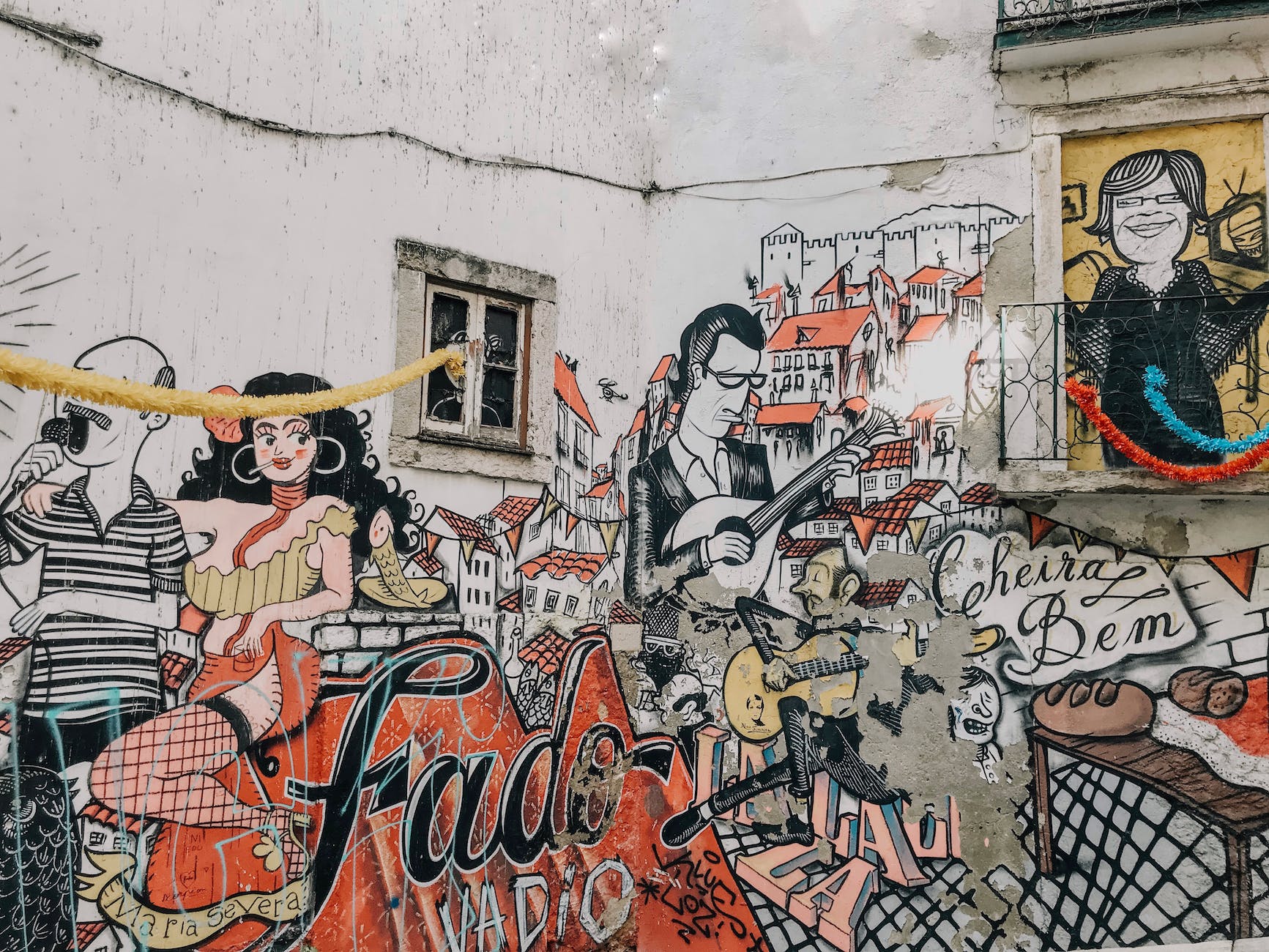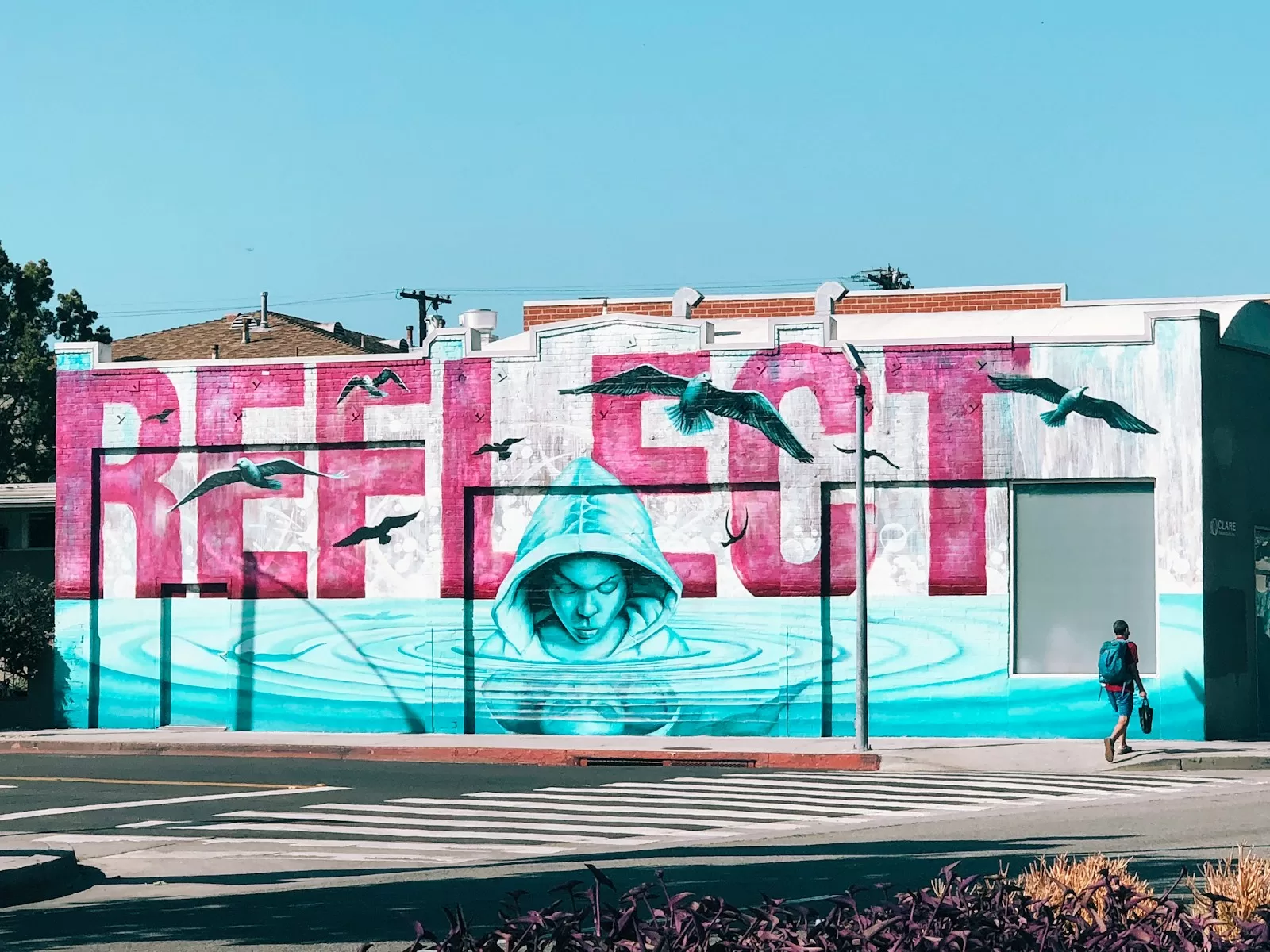Fado is a musical genre deeply rooted in the soul of Portugal. It is a poignant expression of the nation’s collective emotions and identity. With its origins dating back to the early 19th century, Fado weaves together a rich tapestry of heartfelt lyrics, soulful melodies, and a sense of longing. Therefore, it resonates with listeners across the globe. However, this distinctive musical form captures the essence of Portuguese culture. It paints a vivid picture of the country’s history, joys, and sorrows.
Fado, which translates to “fate” or “destiny” in Portuguese, is often performed in intimate settings. Such as local taverns or small theaters. The setting is where the sad and nostalgic tunes take center stage. It typically features a solo singer accompanied by the mournful strains of the Portuguese guitar. The sound creates an ambiance that invites contemplation and reflection. Therefore, it transcends mere musical entertainment.
The music serves as a conduit for storytelling. Where each song becomes a heartfelt narrative of love, longing, loss, and resilience. Join us on a journey to unravel the mysteries of Fado. As we explore the history, cultural significance, and profound emotional depth of this captivating musical art form.
Welcome Back Vagabonds!
Welcome to “Atypical Vagabond,” a portal to a realm where boundaries blur and conventional paths diverge. Here, we delve into the world of unconventional exploration and celebrate the art of wandering without constraints. Join us as we uncover hidden gems, unravel the tales of unconventional nomads, and delve into the transformative experiences that await those who dare to embrace the call of wanderlust.
A strong desire for freedom often arises in a busy world of daily routines and societal pressures. We become fascinated by the exciting appeal of unfamiliar places, the mysterious call of undiscovered destinations, and the life-changing influence of travel. In these instances, we awaken the spirit of the unconventional traveler — the wanderer who desires to explore the world and embark on a journey of self-discovery and personal freedom.
Alfama: The Epicenter of Fado

Alfama, one of the oldest districts in Lisbon, is synonymous with fado. The narrow, winding streets and historic buildings create an atmosphere perfect for experiencing this music’s essence. You can wander through Alfama’s labyrinthine alleys, discovering traditional fado houses, often called “Fado Vadio,” where intimate and authentic performances occur.
Live Fado Performances
Attending a live performance is a must to appreciate the emotional depth. The music is characterized by its mournful yet passionate lyrics, and the music typically features acoustic guitar, Portuguese guitar, and a singer. These performances evoke intense feelings, often centered on themes of longing, nostalgia, and saudade (a uniquely Portuguese word representing a feeling of deep emotional state).
Understanding Fado’s History and Meaning
In Lisbon’s fado houses, you’ll often find informative displays or guides who can explain the history and meaning behind fado. It’s a genre that emerged in the early 19th century and has its roots in Portuguese seafaring and folk traditions. The singers, known as fadistas, pour their hearts into each performance, making it a genuine and moving experience.
Mouraria: Fado’s Other Home
Mouraria, a neighborhood close to Alfama, is another fantastic place to explore Fado. In Mouraria, you’ll find a similar scene, with smaller houses and a solid connection to the music’s heritage. The neighborhood itself is filled with history and associated with Fado’s birth.
How is Coimbra Fado Different?

Coimbra is a charming city in central Portugal. The city is known for its historic university and unique style of fado, known as “Fado de Coimbra.” While the students run the nightlife, some other venues exist to explore. Lisbon has its brand, characterized by its melancholic and soulful expressions. Coimbra’s fado has a distinct character that reflects the academic and romantic spirit of the city.
The Academic Influence
Fado de Coimbra is closely linked to the University of Coimbra, one of the oldest universities in Europe. With roots dating back to the 16th century, this academic institution has played a pivotal role in shaping the fado tradition in the city. Coimbra’s fado is often called “student fado” or “academic fado.”
The Attire and Presentation
One of the most recognizable aspects of Coimbra’s fado is the performers’ attire. While Lisbon’s fado singers typically wear black attire, Coimbra’s fadistas don a more academic and traditional outfit. They wear black cloaks and carry canes, which are reminiscent of the attire of university students in the past.
Lyrically Rich and Poetic
Its lyrically rich and poetic compositions characterize Fado de Coimbra. The songs often revolve around themes of love, longing, and the experiences of university life. The lyrics are profoundly emotional and reflective, and the performances exude a sense of nostalgia, echoing the romanticism of the city itself.
The Portuguese Guitar
The Portuguese guitar also plays a significant role in Coimbra’s fado. It provides the melodic accompaniment to the singer’s heartfelt performance. The interplay between the fadista’s voice and the guitar’s strings creates a mesmerizing and emotional experience for the audience.
A Unique Fado House Experience
When you visit Coimbra, you can experience Fado de Coimbra in dedicated fado houses or “casas de fado.” These venues, like Diligencia, offer an intimate and authentic setting where you can immerse yourself in Coimbra’s fado’s soul-stirring melodies and poignant lyrics. Some other famous houses in Coimbra include “Fado ao Centro” and “Tasca Paraiso.”
Preserving Tradition and Culture
Fado de Coimbra is not just a genre of music. It’s a testament to the cultural and academic heritage of the city. It’s a living tradition that continues to be celebrated and passed down through generations. The songs of Coimbra capture the essence of the city, its history, and the spirit of its people.
If you can visit Coimbra, attending a fado performance is a must. It’s a chance to delve into the heart of the city’s unique cultural and musical tradition. Whether you’re a music enthusiast or someone looking to experience the soul of Portugal, Coimbra’s fado will leave you with lasting impressions and a deeper connection to this remarkable city.
Exploring the Culture
If you are sincerely interested in fado, it’s not just about listening to the music. It’s also about understanding the culture, the stories behind the songs, and the emotions that fuel this musical tradition. Whether you’re a music enthusiast or appreciate authentic cultural experiences, find the soul of Portugal.
As you delve into this unique music, you’ll find it is more than just a genre. it’s a powerful expression of Portuguese identity and history. Enjoy your exploration of fado and the rich cultural heritage it represents in Lisbon, Porto, or Coimbra.
Atypical Last Thoughts

Fado stands as a testament to the power of music to encapsulate the essence of a culture and its people. Through its expressive melodies and poignant lyrics, Fado speaks of Portugal’s intricate tapestry of joys and sorrows, longing and resilience. It has the unique ability to transport us to the cobbled streets of Lisbon, the gloomy alleys of Coimbra, and the depths of the Portuguese soul.
The soul-stirring tunes of Fado continue to captivate and enchant audiences worldwide. The music transcends language barriers to touch the hearts of all who listen. This soulful genre not only narrates tales of love and loss but also gives a window into Portugal’s history, traditions, and heartbeat. As Fado’s mournful strains and lyrical beauty linger in our ears, it leaves an indelible mark. It reminds us that, in music, the power to evoke emotions and connect with our shared humanity knows no boundaries.
If you are not as interested in traditional Portuguese music, you can always check out Lunafest in the Fall.
Subscribe
Are you an avid traveler seeking inspiration for your next adventure? Look no further than the Atypical Vagabonds newsletter. By subscribing to our newsletter, you gain access to a treasure trove of travel tips, destination guides, and captivating stories from around the globe. Our expertise in exploring off-the-beaten-path destinations. We offer a refreshing perspective on travel, encouraging you to embrace the unconventional and discover unique experiences. Join the community today and let our wanderlust-inducing content inspire you. Therefore, you can embark on extraordinary journeys. Subscribe to receive their latest updates directly in your inbox and never miss a travel adventure again.
Donations
Love what you’re seeing on Atypical Vagabond? Help us keep the adventures coming! Consider donating through PayPal’s secure payment system. Every contribution goes a long way in fueling our mission to bring you more thrilling content and unforgettable experiences. Join us in shaping the future of travel—donate today!




[…] Coimbra Fado is very particular: it is traditionally performed exclusively by men dressed in black since there […]